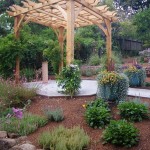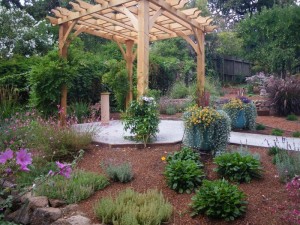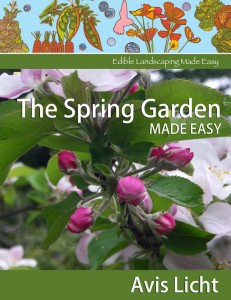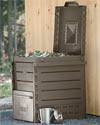
by Avis Licht
An organic fertilizer refers to a soil amendment derived from natural sources that guarantees, at least, the minimum percentages of nitrogen, phosphate, and potash. These include plant and animal by-products, rock powders, seaweed, inoculants, and conditioners. These minimum amounts can be very small. For example, horse and cow manure often have less than 1% nitrogen by weight. This is not to say it’s not a good fertilizer, it is. But depending on your plant’s needs, you may need to add other sources of nitrogen.
One word of caution. An organic fertilizer means it comes from natural materials, BUT it doesn’t mean it’s organic. Cottonseed meal comes from a plant, but cotton is one of the most heavily sprayed crops. There will be pesticide residues in cottonseed meal unless it specifically says it comes from organic cotton. Bloodmeal and bone meal take a great deal of production and energy to produce these fertilizers. Plus you don’t know how the animals were raised. It can seem very complicated to stay fully organic. When possible ask for the source of your fertilizer.
We take a short break from our program to let you know about this important news. The Spring Garden Made Easy, by me, Avis Licht, is now available for all you enthusiastic gardeners that want to get your Spring garden planted with the least possible problems. Yes, now you too, can have the Garden of Eden in your back or front yard. Or maybe a few lettuces and tomatoes. It’s all in this 20 page ebook, with easy to follow suggestions. Links in the book will lead you to much more detailed information. Try it, you’ll like it. Only $4.99.
Different manures have different nutrient values based on the animal, what it ate, how much bedding is in the manure and so on. In another post I’ll talk about the relative merits of different manures. For now, let’s just agree that manure from herbivores that is composted, is a good organic fertilizer. I say herbivores, because we don’t want to use poop from meat eating animals like dogs, cats or humans. There is risk of parasites or disease organisms that can be transmitted to humans from meat eating animals. For ease of listing, here are Vegetable fertilizers: alfalfa meal, cotton seed meal, green manure, sea weed, wood ash. Animal by-products include: manure, blood meal, bone meal, fish meal, feather meal and bat guano. Mined minerals include: rock phosphate, green sand, gypsum.
The easiest fertilizer is compost that you make at home from material in your yard. But it takes a LOT of material to make a little compost. You’ll probably have to bring in compost or topsoil when you first start your garden. This is not terrible, it just costs money and uses outside resources. Sometimes we have to do that.
Soil amendments are materials that don’t have a minimum amount of nutrient, like compost. They can be worked into the soil or laid on top. Amendments are important for the humus they add, the tilth, and aeration of the soil. Without proper soil aconditions, it doesn’t matter how much nutrient you put in. Roots need air, water and microbial activity, which all comes from adding organic amendments.
Mulch is material laid on the surface and does not add nutrient to the soil until it breaks down over time. Mulch protects the soil from compaction, erosion and keeps the weeds down. It also conserves water. Even though we don’t call it a fertilizer, it’s a very important part of the garden and soil and plant health.
In previous posts I wrote about legumes, which fix nitrogen and wood ash. Keep coming back, as I’ll go through the whole list of fertilizers. In the mean time, dig up your beds, or sheet mulch them, and then add compost and/or composted manure. You’ll be off to a good start.
One Response to “What is an Organic Fertilizer Anyway?”
Sorry, the comment form is closed at this time.

 Follow
Follow




[…] nitrogen fixing plants is one of the best ways to restore it in the soil. But this takes time. Compost and manures, which are also excellent for the plants, have relatively small amounts of […]